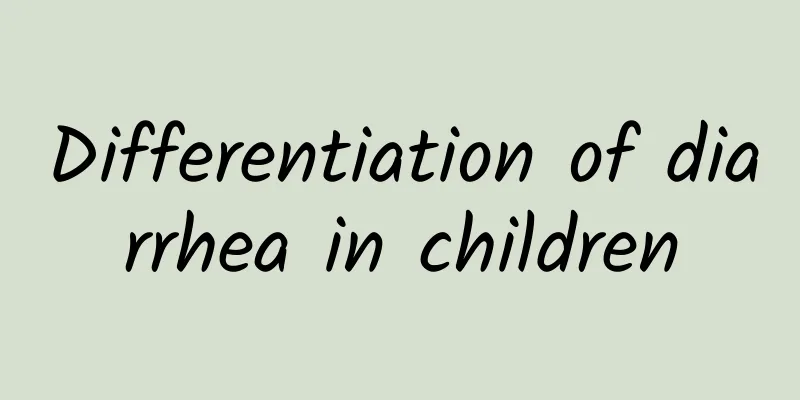What are the results of malnutrition etiology analysis?

|
Malnutrition is a health symptom of most children today, which is caused by insufficient nutrient intake or poor absorption, but also by overeating and overnutrition. Some parents will ask, why is it that eating too little is not good, and eating too much is not good either? Let's take a look at the results of the malnutrition cause analysis. The main causes are as follows: 1. Improper feeding Long-term insufficient food intake, such as insufficient breast milk and failure to add complementary foods early. Artificial feeding, the quality and quantity of food do not meet the needs, such as excessive dilution of milk, or feeding with starchy foods alone. Sudden weaning, the baby cannot adapt to new foods, etc. 2. Bad eating habits Irregular eating habits, picky eating, rumination habits or nervous vomiting, etc. 3. Disease factors Diseases affect appetite, hinder food digestion, absorption and utilization, and increase the body's consumption. Common diseases that can easily cause malnutrition include persistent infantile diarrhea, chronic enteritis or dysentery, malabsorption syndrome caused by various enzyme deficiencies, intestinal parasitic diseases, tuberculosis, measles, recurrent respiratory tract infections, chronic urinary tract infections, etc. Certain congenital malformations of the digestive tract (such as cleft lip, cleft palate, congenital hypertrophic pyloric stenosis or cardia relaxation, etc.) and severe congenital heart disease can cause feeding difficulties. Certain inherited metabolic disorders and immunodeficiency diseases can also affect food digestion, absorption and utilization. Premature birth and twins are prone to malnutrition, intrauterine infection, maternal illness or malnutrition, and abnormalities in the structure and function of the placenta and umbilical cord can lead to fetal malnutrition and intrauterine growth retardation, which are prerequisites for infant malnutrition. Severe malnutrition is mostly caused by a variety of factors. Breastfeeding is encouraged. For those with insufficient or no breast milk, they should be supplemented with milk substitutes containing high-quality protein (cow's or goat's milk, soy milk, fish, etc.), and avoid feeding with starchy foods, condensed milk or malted milk alone. Older children should pay attention to the correct combination of food ingredients, appropriately supply meat, eggs, soy products, and supplement with enough vegetables. |
<<: What is the best medicine for malnutrition?
>>: What nutrients are needed in the diet for Kawasaki disease
Recommend
What to do if a three-month-old baby suffers from bronchial pneumonia? 6 nursing methods for bronchitis
What are the symptoms of bronchial pneumonia in a...
What to do if your six-month-old baby coughs
It is common to see babies coughing when they are...
I have had intermittent abdominal cramps and diarrhea for a month. Is this normal?
Intermittent abdominal cramps and diarrhea for a ...
Nursing methods for children with pneumonia
Neonatal pneumonia is a common and frequent disea...
What medicine is good for neonatal jaundice
Neonatal jaundice is mostly a physiological probl...
What tests should be done if pneumonia in children is suspected? Pneumonia in children is easily confused with 3 diseases
What diseases should be differentiated from pneum...
Can acute laryngitis in children be cured?
Acute laryngitis in children is more common in wi...
Recipes for treating mumps
In recent years, mumps has gradually become a mul...
Is hot or cold compress the way to reduce swelling in mumps?
The method to reduce swelling of mumps is hot com...
What is the best way to treat baby's allergic eczema?
Once baby allergic eczema occurs, it needs to be ...
Can children drink Tianqi stewed chicken? Children can eat Tianqi stewed chicken to improve their immunity.
Panax notoginseng stewed chicken is a common toni...
What ointment can cure baby's red buttocks quickly? What are the reasons for baby's red buttocks?
There are many reasons for babies to have red but...
How can you tell if you have mild polio?
Mild polio can be initially detected by observing...
How to treat mumps in children and get better faster
Treatment of mumps in children requires a combina...
Can polio be cured now?
Polio is a relatively serious disease that affect...









